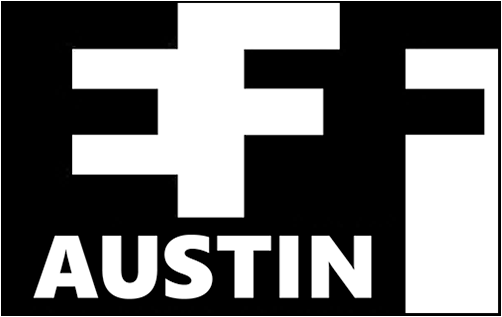Repressive foreign governments – in China, Egypt, Iran and Syria, to name just a few – have cut off communications (the Internet, mobile service and landline) as a means to repress dissent or expressive acts the regime deems inconvenient. Often, the repressive regime asserts that silencing their citizens was necessary to maintain the peace, or prevent damage to property. US authorities have been quick to condemn this denial of free speech. Indeed, according to several reports the US is funding an effort to develop means to deploy the “Internet in a suitcase” and “independent cell phone networks” that “dissidents can use to undermine repressive governments that seek to silence them by censoring or shutting down telecommunications networks.”
Sascha Meinrath [ @SaschaMeinrath ] of the New America Foundation [ @NewAmerica ] opens up the “Internet in a suitcase.”
The first use of this US-funded detour around censors, however, may need to be right here at home if recent events involving the San Francisco Bay area, within the metropolitan transit system known as BART, are repeated.
Connectivity to traditional radio towers to obtain mobile phone and data service is often difficult in large, dense buildings, and it is practically undeliverable in subways or below-ground trains. The larger mobile service providers sometimes cooperate with the owners of such venues to place repeaters or smaller microcells using the mobile provider’s licensed frequencies. A few years ago, BART made arrangements with several of the mobile providers to do so in several of its locales. BART also contracted with a company that provides Wi-Fi capability, although the service is not free.
On July 3, 2011 a transit police officer fatally shot a man. The police assert that the suspect threw a vodka bottle at the officer, then came at him and another officer with a knife. A protest about a week after the shooting had disrupted service on BART.
BART officials apparently learned that another protest was being planned for August 11. According to BART, the protest was intended to once again shut down the system and it was going to be coordinated using online tools, with virtual real-time reporting about the number and location of law enforcement. BART officials decided to disable communications by powering down the mobile service repeaters/microcells and the Wi-Fi routers in order to inhibit this planned on-line coordination. The protest never happened, but all transit users suffered from the loss of connectivity.

Bart (Simpson) suggests penance for #MuBARTek debacle.
Image credit: San Francisco Citizen - Nice One, BART - You Went and Pissed Off #Anonymous With Your Cell Phone Hijinks
While EFF-Austin [ @EFFaustin ] cannot condone illegal activity, we strongly support the right of citizens to peaceably assemble, to organize such assemblies, and to exercise their First Amendment rights using modern communications. We see no material difference between BART’s take-down decision, its immediate and subsequent justification, and what has happened with sad regularity in other parts of the world. The most recent news indicates that the BART board has now realized it committed a grave error and plans to take steps to ensure it is not repeated. That is encouraging.
We do find it somewhat interesting that the mobile service providers claim to have had no involvement in, or previous knowledge of, the decision and action to take down. If this is true, then it appears there have been at least two separate violations of federal law. BART’s action probably violated section 333 of the Communications Act. The mobile providers’ decision to give control over the mobile service repeaters/microcells to BART also probably violated the terms of their licenses and FCC rules, 47 C.F.R. sections 22.383 and 22.527, and possibly others. The FCC noted only a few months ago that “the Commission’s rules and policies adopted pursuant to section 310(d) require that licensees maintain control over and responsibility for their assigned spectrum, equipment, and operations. Similarly, section 1.903 established that stations in wireless services may only be operated with an FCC authorization (i.e., license).” Violations are punishable by fines and forfeitures. Although the FCC is considering changing these rules—in an effort to encourage further use of repeaters and signal boosters by users—the rule changes have not yet gone into effect.
We are glad that BART may have realized the grave nature of its mistake, and hope that they commit to not doing this again. Our government is developing alternative mobile technologies under the presumption they would be deployed in countries subject to repressive regimes bent on denying free expression. The sad but delicious irony is their first use may be required right here at home – because a repressive local, state or national governmental body has decided to deny free expression using the same excuses heard abroad: that disconnection is “necessary” to “protect property” or “the public order.” Considering the volume of outcry in response to this event, it seems the decision makers at BART may have unwittingly provided an opportunity to renew and strengthen civil liberties in the United States. The world is watching.



